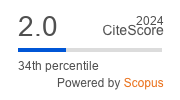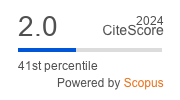| 2/2004 - 12 |
Iterative Fractal AlgorithmsGeorge MAHALU, Adrian GRAUR |
| Extra paper information in |
| Click to see author's profile in |
| Not available online | Views: 1,449 |
Author keywords
fractal, iterative algorithm, logistic map, attractor, spintronics theory
References keywords
References keywords will be displayed on the next page reload.
About this article
Date of Publication: 2004-04-02
Volume 4, Issue 2, Year 2004, On page(s): 64 - 69
ISSN: 1582-7445, e-ISSN: 1844-7600
Digital Object Identifier: Not assigned
Abstract
In the complexity theory is notable involving of the iterative functions in behaviour of fractal pattern. Study of the nonlinear equation, treated into iterative techniques, makes the subject of this paper. It consists in a short revue of the most important principles of the fractal calculus and complexity applications in fundamental sciences and technologies. Were been presented also some new ideas of analysis to iterative relations like as named the modified logistic equation. Is shown a relation that can be conducts to performing some studies with valuable results in numeric analysis area. In this paper work is performed a critical analysis about iterative fractal techniques which can conduct to various implemented applications. In bifurcation diagram of logistic map are presented results of the own program run, that is written under C++ programming language. With this occasion we observed some different featuring for some characteristic points by defined domain, in relation with those specified features into published works over subject. The Ising model was be used by our team in designing one bipolar spin-transistor based on the spintronics theory. |
| References | | | Cited By |
On-line references are not available - see the PDF file if available.
Faculty of Electrical Engineering and Computer Science
Stefan cel Mare University of Suceava, Romania
All rights reserved: Advances in Electrical and Computer Engineering is a registered trademark of the Stefan cel Mare University of Suceava. No part of this publication may be reproduced, stored in a retrieval system, photocopied, recorded or archived, without the written permission from the Editor. When authors submit their papers for publication, they agree that the copyright for their article be transferred to the Faculty of Electrical Engineering and Computer Science, Stefan cel Mare University of Suceava, Romania, if and only if the articles are accepted for publication. The copyright covers the exclusive rights to reproduce and distribute the article, including reprints and translations.
Permission for other use: The copyright owner's consent does not extend to copying for general distribution, for promotion, for creating new works, or for resale. Specific written permission must be obtained from the Editor for such copying. Direct linking to files hosted on this website is strictly prohibited.
Disclaimer: Whilst every effort is made by the publishers and editorial board to see that no inaccurate or misleading data, opinions or statements appear in this journal, they wish to make it clear that all information and opinions formulated in the articles, as well as linguistic accuracy, are the sole responsibility of the author.



